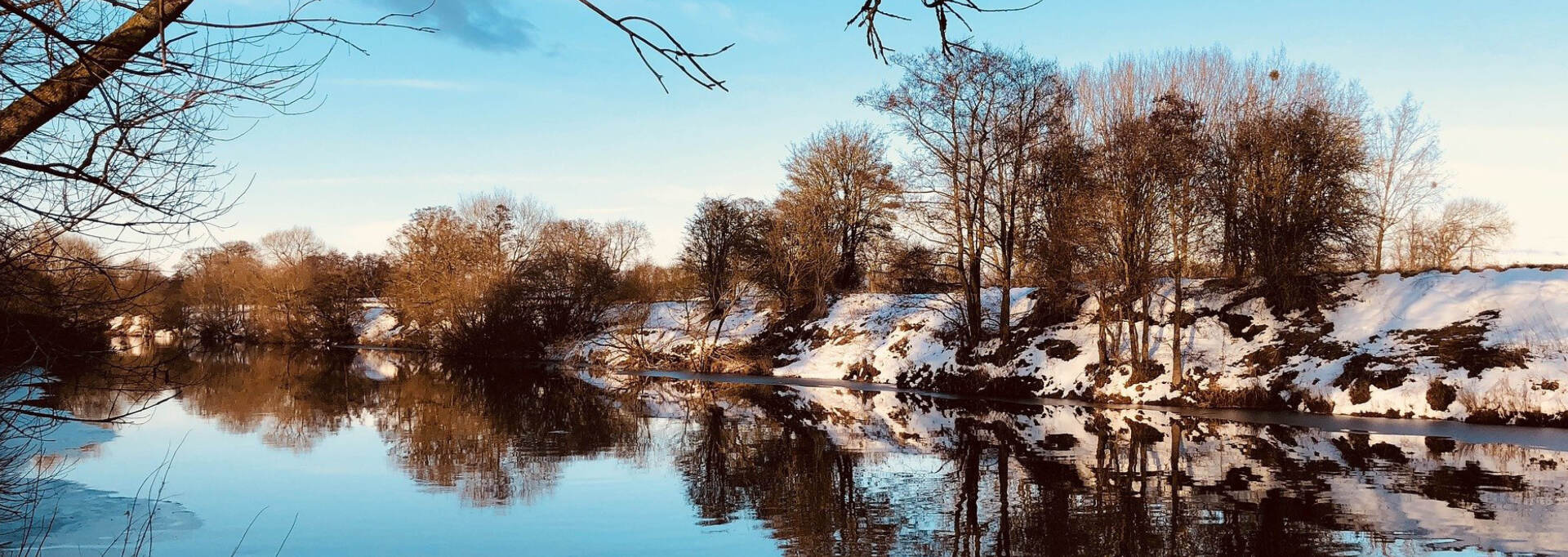Learning's from the River Lugg

Last week the River Lugg, a nationally important Site of Special Scientific Interest, situated within the Wye Catchment - a European protected habitat - hit the news after reports of destruction and unconsented river works. Envireau Water have worked extensively within the Wye and Lugg catchments over the last 20 years and we are very conscious of the importance of the SSSI. With this distressing news we thought we would take this opportunity to highlight the effects human interaction can have to our natural water environment.
We do not know under what circumstances the works took place, however, there is a learning point to be taken from this event. In general, activities carried out within 8 metres of the bank of a river requires a permit from the regulators. Requirements differ across the devolved nations and the river in question, so be sure to know which regulatory body you need to apply to. The steps taken to obtain a permit can be time-consuming, but not necessarily difficult. The permitting process allows the impact of the proposed works to be assessed, other stakeholders to be involved (for example Natural England and the Forestry Commission) and mitigation to be designed to minimise or eliminate impacts.
What happened to the SSSI?
The news reports state that a 1-mile reach of the river and banks have been subjected to, dredging, felling of trees and re-profiling. The consequences for this may include removal of protected habitats, increased soil erosion, increased turbidity, silt deposition on spawning areas, and reduced bank stability, all contributing to the decline of ecosystems and water quality.
Our Principal Hydrologist Lee Clarke said…
“The motivation of the event was likely to reduce and manage flood risk. However, there are many other suitable solutions which could have been implemented, such as Nature-based solutions (NBS). These offer effective ways to protect, sustainably manage and even restore natural systems.
Though, we don’t know the full story, as a landowner you have a responsibility to protect the environment and it’s integral you are aware of your regulatory requirements. What you might perceive as a costly, time consuming activity in gaining a consent or a permit, could prevent you from being in deep water with the regulator.”
What can you do?
Don’t make the same mistake! If you’re unsure of your options, don’t hesitate to get in touch. Our team has a wealth of experience in the permitting requirements for works in, or near rivers and other water courses and can liaise with the correct regulatory body to obtain the necessary permit or consent for you. We carry out regulatory work across the UK and are here to support you whilst protecting the environment. Get in touch with our technical lead
LeeClarke@envireauwater.co.uk or call us on
01332 871 882.







